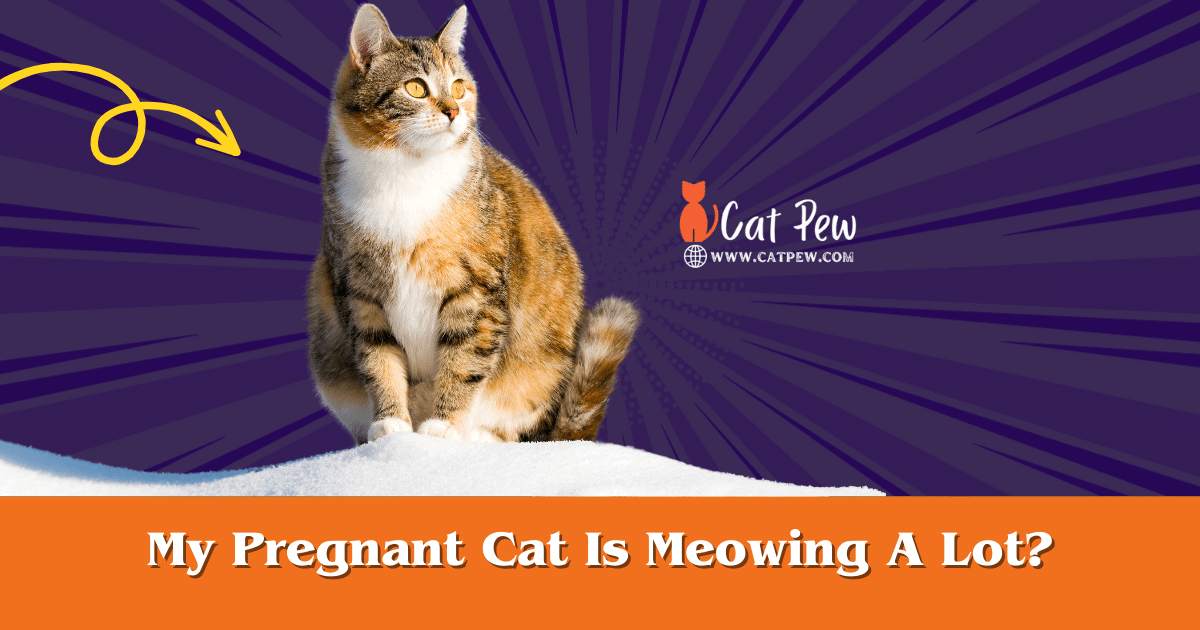Your pregnant cat meowing a lot is a normal sign that she is close to giving birth. It is a common behavior for cats in labor to become restless, anxious, and vocalize more than usual.
This increased meowing is a clear indication that she is preparing for the arrival of her kittens. Providing her with a comfortable and secluded birthing area can help ease her discomfort and make the process smoother.
Signs Of Labor In Cats
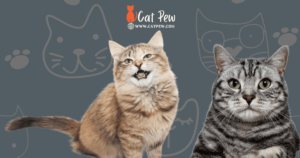
A pregnant cat can exhibit various behavioral changes as labor approaches. Understanding these signs can help you provide the necessary care and support to your furry friend during this crucial time. In this section, we will explore the different signs of labor in cats, including increased vocalization, restlessness, pacing, itching and licking genitalia, and howling and chirping during labor.
Increased Vocalization – Understanding The Reasons Behind Excessive Meowing During Pregnancy.
During pregnancy, your cat may experience hormonal changes that can lead to increased vocalization. She may meow more frequently to communicate her needs or seek attention. Additionally, as the kittens develop and grow inside her, the pressure on her organs may cause discomfort, resulting in excessive meowing. It’s important to pay attention to the context and frequency of your cat’s meowing to determine if it is related to labor or other issues she may be experiencing.
Restlessness And Pacing – How A Pregnant Cat’s Behavior Changes As Labor Approaches.
As labor approaches, a pregnant cat may become restless and exhibit pacing behavior. This restlessness is often a sign that she is preparing for birth and trying to find a secluded and comfortable place to deliver her kittens. It is essential to provide her with a safe and quiet space where she can feel secure. Observing her behavior closely can help you identify when she is ready to give birth.
Itching And Licking Genitalia – The Significance Of A Discharge From The Cat’s Vulva Before Birth.
Close to giving birth, you might notice your cat frequently licking her genitalia. This behavior is completely normal and serves to keep the area clean and prepare for the arrival of the kittens. Pay attention to any discharge from her vulva, as it is a clear indication that birth is imminent. If you notice any abnormal discharge, such as a foul odor or discoloration, it is important to consult a veterinarian promptly.
Howling And Chirping – Exploring The Different Sounds A Pregnant Cat May Make During Labor.
During labor, a pregnant cat may exhibit various vocal sounds, including howling and chirping. These sounds can indicate that she is experiencing contractions and actively giving birth to the kittens. It is crucial to create a calm and peaceful environment during this time, providing support and monitoring her progress to ensure a safe and successful delivery.
Remember, every cat is unique, and their labor experiences may differ. It is essential to familiarize yourself with your cat’s typical behavior to better recognize any changes or signs of distress during pregnancy and labor. By understanding the signs of labor in cats, you can ensure that your feline companion receives the necessary care and attention during this significant time.
Understanding Your Cat’s Discomfort
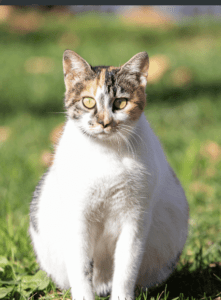
During pregnancy, a cat goes through a range of emotional and physical discomfort that may manifest through various behaviors, including excessive meowing. Understanding the causes behind your pregnant cat’s distress can help you provide the necessary care and support. Let’s explore the different aspects of your cat’s discomfort and how you can address them.
The Emotional And Physical Discomfort A Pregnant Cat Experiences
Pregnancy can bring about hormonal changes and physical discomfort for your cat. These discomforts can lead to behavioral changes, including increased vocalization. Your cat may meow more frequently to express her discomfort, restlessness, and anxiety. Additionally, she may exhibit pacing, howling, or chirping behaviors.
It is important to recognize these signs as indications that labor could be approaching. Your cat’s behaviors are her way of communicating with you, seeking comfort, and preparing for the arrival of her kittens.
Providing A Safe And Comfortable Birthing Environment
To alleviate your pregnant cat’s discomfort and minimize excessive meowing, it is crucial to create a safe and comfortable birthing environment. This will ensure that your cat feels secure and supported during this important time.
Consider providing a quiet and secluded space for your cat to give birth. This will allow her to feel protected and reduce her anxiety. A cozy nesting box with soft bedding can serve as a perfect spot for her to labor and deliver the kittens.
Preparing For The Arrival Of Kittens – Essential Supplies And Preparations
As your cat’s due date approaches, it’s essential to be prepared with the necessary supplies and preparations. Ensuring that you have these items ready will help minimize your cat’s discomfort and make the birthing process smoother for both her and the kittens.
- Nesting box with clean and soft bedding
- A heating pad or hot water bottle wrapped in a towel for warmth
- Non-toxic disinfectant for cleaning the birthing area
- Plenty of fresh water and nutritious food for the nursing mother
- Kitten nursing bottles and formula for emergencies
- Soft towels and blankets for drying and keeping the kittens warm
- Kitten scale for monitoring their growth
Having these supplies readily available will help ensure a safe and comfortable environment for your pregnant cat and her soon-to-be-born kittens.
Monitoring Your Cat’s Health During This Period
Throughout your cat’s pregnancy, it is crucial to monitor her health closely to ensure the well-being of both her and the kittens. Regular veterinary check-ups are highly recommended to address any potential issues or complications.
Keep an eye on your cat’s eating habits, water intake, and litter box use. Any significant changes in appetite, excessive thirst, or difficulty in eliminating waste should be promptly addressed by a veterinarian. This close monitoring will ensure your cat’s comfort and help prevent any potential health risks during the pregnancy and labor.
By understanding your pregnant cat’s discomfort and providing the necessary care, support, and preparation, you can help ease her anxiety and create a positive birthing experience for both her and her kittens.
Common Concerns About Pregnant Cats
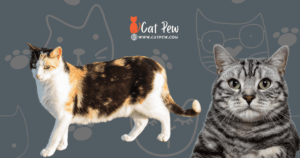
During pregnancy, cats may exhibit a variety of behaviors that can be concerning for their owners. These behaviors can range from unusual noises to signs of distress and can leave owners wondering how to best support their pregnant feline. In this section, we will address some of the common concerns regarding pregnant cats and provide advice on how to manage these situations.
Unusual Noises During Pregnancy – Reasons And Explanations
It is not uncommon for pregnant cats to make unusual noises during their pregnancy. These noises can include meowing, howling, chirping, or even growling. While it may be concerning to hear your cat making these sounds, there are several reasons and explanations behind these behaviors.
One possible reason for these unusual noises is that your cat is experiencing discomfort or restlessness as labor approaches. Just like humans, cats may exhibit increased vocalization and restlessness when they are close to giving birth. They may pace, seem anxious, and meow or cry more frequently than usual.
Another reason for these noises could be that your cat is searching for a secluded place to give birth. If you haven’t provided her with a suitable birthing area, she may meow and wander around the house as if looking for a safe spot to deliver her kittens.
Identifying Signs Of Distress In A Pregnant Cat
While some vocalization and restlessness are expected during pregnancy, it’s important to be able to identify signs of distress in your pregnant cat. This will help you take appropriate action and ensure the well-being of both the mother and the kittens.
If you notice that your cat’s meowing or growling is continuous and accompanied by other signs of distress such as panting, excessive salivation, or aggression, it could indicate that she is in pain or experiencing complications. In such cases, it is vital to consult with a veterinarian to assess the situation and provide necessary medical intervention.
Managing A First-time Pregnancy – Advice For Handling Growling And Other Behaviors
If your pregnant cat is exhibiting growling or other aggressive behaviors, it’s essential to handle the situation calmly and safely. Here are some tips for managing a first-time pregnancy and handling these challenging behaviors:
- Provide a comfortable and secluded birthing area for your cat where she feels safe and secure.
- Avoid excessive handling or touching of the pregnant cat, as it may cause her to become more anxious or defensive.
- Set up regular feeding, play, and grooming routines to establish a sense of stability and familiarity for the mother-to-be.
- Consult with a veterinarian to rule out any underlying health issues that may be contributing to the growling or aggressive behaviors.
- Consider using pheromone sprays or diffusers, specifically designed for pregnant cats, to help create a calming environment.
Addressing Concerns About A Pregnant Cat’s Well-being
As a responsible cat owner, it is natural to have concerns about the well-being of your pregnant cat. Here are a few measures you can take to address these concerns and ensure the health and comfort of your feline:
- Provide a balanced and nutritious diet tailored for pregnant cats, ensuring they receive sufficient nutrients to support their health and the development of the kittens.
- Offer regular veterinary check-ups throughout the pregnancy to monitor the progress, address any concerns, and receive appropriate guidance.
- Create a quiet and stress-free environment for your pregnant cat, minimizing loud noises and disturbances that could cause her unnecessary anxiety.
- Monitor your cat’s behavior and physical signs for any sudden changes or indications of distress, seeking veterinary attention as needed.
- Ensure your cat has access to clean water at all times and provide a comfortable and warm resting area for her to relax.
By addressing these concerns and providing proper care and attention, you can help support your pregnant cat’s well-being and ensure a smooth and safe pregnancy for both her and the kittens.
Caring For A Pregnant Cat
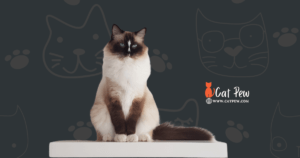
During pregnancy, it is normal for a cat to meow more frequently. This could be due to discomfort, restlessness, or anxiety related to labor. Providing a safe and secluded space for your cat to give birth can help alleviate her meowing.
Proper Nutrition And Feeding Guidelines During Pregnancy
During your cat’s pregnancy, it’s crucial to ensure she receives proper nutrition to support her health and the growth of her kittens. Consult your veterinarian for specific feeding guidelines, as the nutritional needs may vary depending on your cat’s size and breed. It’s recommended to feed high-quality, balanced cat food formulated for pregnant and nursing cats. These diets are rich in essential nutrients, such as protein, calcium, and vitamins, to promote healthy fetal development. Additionally, provide your cat with fresh water at all times to keep her hydrated. Avoid giving her any medication or supplements without consulting your vet first, as some can be harmful to pregnant cats.
The Importance Of Regular Veterinary Check-ups
Regular veterinary check-ups are essential for monitoring your pregnant cat’s health and ensuring a smooth pregnancy. Schedule appointments with your veterinarian throughout the pregnancy to assess your cat’s overall well-being, check for any underlying health conditions, and monitor the progress of the pregnancy. Your vet will also provide valuable guidance on nutrition, exercise, and any necessary vaccinations for your cat during this time. These check-ups allow early detection of any potential complications and help provide appropriate care to ensure a successful pregnancy and safe delivery.
Tips For Keeping Your Pregnant Cat Calm And Stress-free
Maintaining a calm and stress-free environment is vital for the well-being of your pregnant cat. Pregnant cats can be more sensitive and easily stressed, which can affect their health and the development of the kittens. Minimize loud noises, sudden changes, and excessive handling or petting during this time. Provide your cat with a quiet and secluded space where she feels safe and comfortable to rest and relax. Ensure she has access to her litter box and that it is clean, as cats can become more fussy about hygiene during pregnancy. Give her plenty of affection and attention, but be cautious not to overwhelm her. It’s also recommended to keep other pets away to reduce any potential aggression or anxiety.
Preparing For Post-birth Care And Kitten Socialization
As your cat’s due date approaches, it’s important to prepare for post-birth care and kitten socialization. Set up a quiet and warm area where your cat can give birth and care for her kittens. Provide a comfortable nesting box with soft bedding and ensure it is easily accessible for your cat. Have all the necessary supplies ready, including clean towels, blankets, and a heating pad or lamp to maintain a warm and cozy environment for the newborns. Socialize with the kittens from an early age by gently handling them and exposing them to different sights, sounds, and human interaction. This will help them become well-adjusted and friendly adult cats in the future. In conclusion, caring for a pregnant cat involves providing proper nutrition, regular veterinary check-ups, creating a calm and stress-free environment, and preparing for post-birth care and kitten socialization. Following these guidelines will ensure the well-being of your pregnant cat and her kittens, leading to a successful and safe pregnancy journey.
Frequently Asked Questions For My Pregnant Cat Is Meowing A Lot?
Does A Cat Meow A Lot Before Labor?
Yes, a pregnant cat may meow a lot before going into labor. This could be a sign of restlessness and discomfort as labor approaches. It is important to provide a safe and comfortable space for the cat to give birth.
How Do I Know When My Cat Is Close To Labor?
A cat nearing labor may exhibit signs such as frequent licking of the genital area and a discharge from the vulva. She may also pace, howl, meow, or chirp more than usual. These behaviors indicate restlessness and discomfort as labor approaches.
Providing a secluded place for her to give birth is essential.
Do Cats Still Yowl When Pregnant?
As labor approaches, pregnant cats may yowl a lot or howl and show restlessness. They may wander around the house as if searching for something and look for a secluded place to give birth. This behavior is normal as they experience discomfort and prepare for labor.
Provide them with a suitable birthing area.
Why Is My Cat Making Weird Noises While Pregnant?
During pregnancy, cats may make weird noises due to discomfort or fear. As long as she’s eating, drinking, and eliminating normally, there’s usually nothing to worry about. She may be growling when she feels the kittens moving in a certain way.
Providing her with a safe and comfortable birthing area can help alleviate her restlessness.
Conclusion
If your pregnant cat is meowing a lot, it may be a sign that she is close to labor. Increased vocalization and restlessness are common behaviors exhibited by cats during this time. It is important to provide her with a comfortable and secluded space to birth her kittens.
However, if you notice any unusual or concerning symptoms, it is best to consult with a veterinarian for further guidance. Taking proper care of your pregnant cat can ensure a smooth and safe delivery for her and her kittens.

Winston
I'm Winston, the author of this feline-focused (Catpew.com) blog . My love for cats goes back to my childhood, when I spent countless hours playing with my family's tabby, Mittens. This furry friend instilled in me a deep appreciation for the unique personalities, playful nature, and unconditional love that cats offer.

